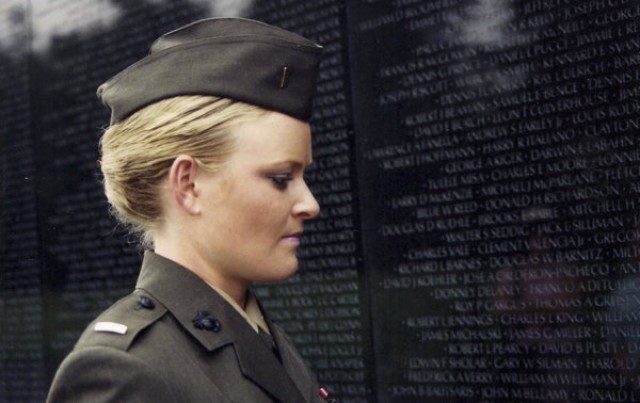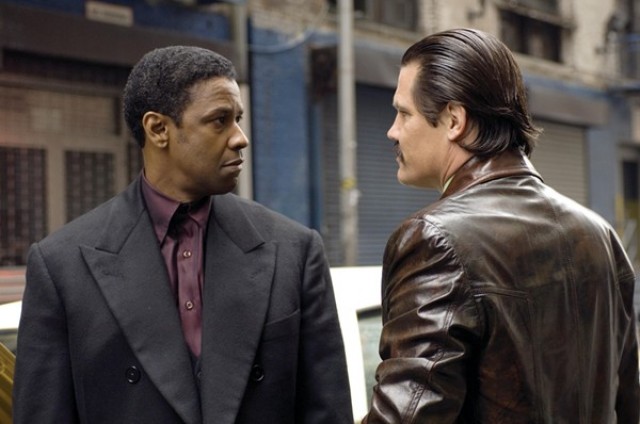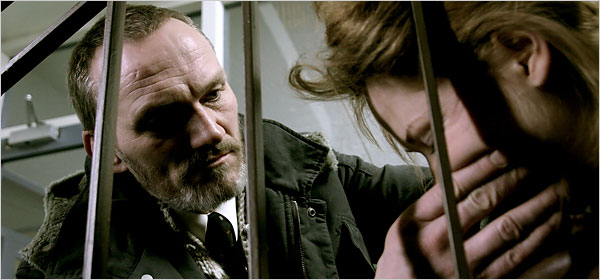CHOI MIN-SIK: MR. VENGEANCE — NAMELESS GANGSTER: RULES OF THE TIME (BUMCHOIWAUI JUNJAENG) (Yun Jong-bin, 2012)
Film Society of Lincoln Center, Walter Reade Theater
165 West 65th St. at Amsterdam Ave.
Saturday, June 30, 9:00, and Tuesday, July 3, 1:00
Festival runs June 29 – July 12
212-875-5601
www.subwaycinema.com
www.filmlinc.com
 In 1990, Roh Tae-woo, the thirteenth president of South Korea, officially declared war on organized crime. Writer-director Yun Jong-bin goes back to that dramatic period in the 2012 epic mob thriller Nameless Gangster: Rules of the Time. Korean star Choi Min-sik (Oldboy) put on a few pounds to play the roly-poly Choi Ik-hyun, a corrupt Customs inspector who soon immerses himself in Busan’s underworld culture. A goofy, pathetic figure who drinks too much and has no loyalty to anyone but himself, Choi seems to always find a way to survive despite his infuriatingly stupid decisions. He uses his family connections to team up with his godson, Choi Hyung-bae (Ha Jung-woo), a smooth, ultracool gangster who is continually suspicious of his godfather, and to convince determined prosecutor Choi Joo-dong (Kim Eung-soo) not to lock him up and throw away the key. Things come to a head when he gets involved with Kim Pan-ho (Jo Jin-woong) and a casino hotel, leading to violence, betrayal, and whimpering. Told primarily in flashback set in the 1980s, Nameless Gangster is a potent blend of mob drama and comedy, as Yun (The Moonlight of Seoul, The Unforgiven) mixes in elements of such genre classics as Goodfellas and The Godfather while also telling the story of a changing Korea. Choi Min-sik is a hoot as Choi Ik-hyun, a putz who just keeps on keepin’ on, his round face and puppy-dog eyes somehow helping to keep him alive even as he essentially demands to get whacked. Nameless Gangster is screening June 30 at 9:00 and July 3 at 1:00 at the New York Asian Film Festival at the Film Society of Lincoln Center, where it is part of the sidebar event “Choi Min-sik: Mr. Vengeance,” which also includes 2001’s Failan, 2003’s Oldboy, and 2005’s Crying Fist. Choi Min-sik will be on hand for the June 30 screening to talk about the film and his fascinating career.
In 1990, Roh Tae-woo, the thirteenth president of South Korea, officially declared war on organized crime. Writer-director Yun Jong-bin goes back to that dramatic period in the 2012 epic mob thriller Nameless Gangster: Rules of the Time. Korean star Choi Min-sik (Oldboy) put on a few pounds to play the roly-poly Choi Ik-hyun, a corrupt Customs inspector who soon immerses himself in Busan’s underworld culture. A goofy, pathetic figure who drinks too much and has no loyalty to anyone but himself, Choi seems to always find a way to survive despite his infuriatingly stupid decisions. He uses his family connections to team up with his godson, Choi Hyung-bae (Ha Jung-woo), a smooth, ultracool gangster who is continually suspicious of his godfather, and to convince determined prosecutor Choi Joo-dong (Kim Eung-soo) not to lock him up and throw away the key. Things come to a head when he gets involved with Kim Pan-ho (Jo Jin-woong) and a casino hotel, leading to violence, betrayal, and whimpering. Told primarily in flashback set in the 1980s, Nameless Gangster is a potent blend of mob drama and comedy, as Yun (The Moonlight of Seoul, The Unforgiven) mixes in elements of such genre classics as Goodfellas and The Godfather while also telling the story of a changing Korea. Choi Min-sik is a hoot as Choi Ik-hyun, a putz who just keeps on keepin’ on, his round face and puppy-dog eyes somehow helping to keep him alive even as he essentially demands to get whacked. Nameless Gangster is screening June 30 at 9:00 and July 3 at 1:00 at the New York Asian Film Festival at the Film Society of Lincoln Center, where it is part of the sidebar event “Choi Min-sik: Mr. Vengeance,” which also includes 2001’s Failan, 2003’s Oldboy, and 2005’s Crying Fist. Choi Min-sik will be on hand for the June 30 screening to talk about the film and his fascinating career.
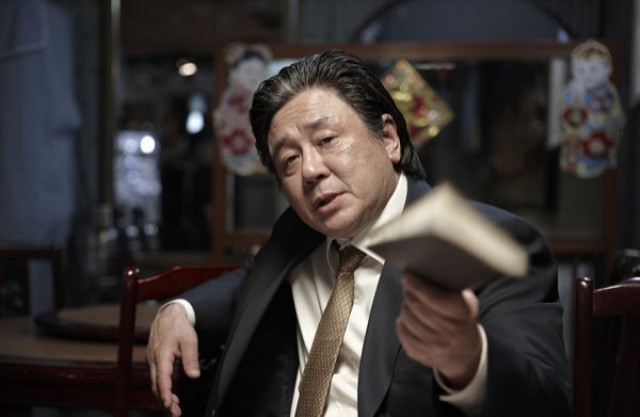
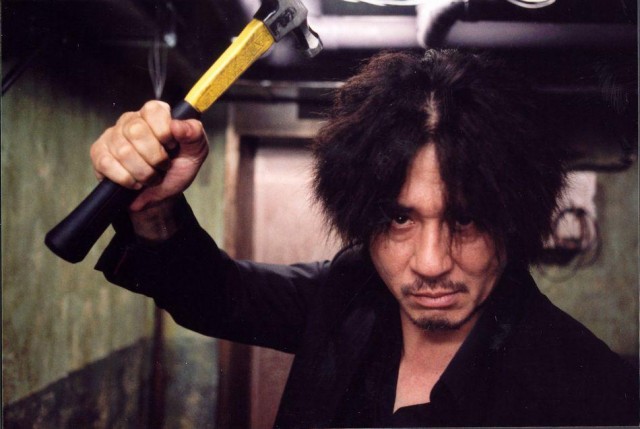
 The second in director Park Chan-wook’s revenge trilogy (in between Sympathy for Mr. Vengeance and the 2005 New York Film Festival selection Sympathy For Lady Vengeance), Oldboy is a twisted, perverse psychological thriller that won the Grand Prix de Jury at Cannes, among many other international awards. Choi Min-sik (Chihwaseon) stars as Oh Dae-su, a man who has been imprisoned for fifteen years — but he doesn’t know why, or by whom. When he is finally released, his search for the truth becomes part of a conspiracy game, as he can seemingly trust no one. As he gets closer to finding everything out, the gore and terror continues to increase. Choi is outstanding as the wild-haired Dae-su in Park’s awesome rampage of a film, which is not for the faint of heart. On the DVD, the extras include audio commentary and deleted scenes in which Park discusses how embarrassing it is doing audio commentary and showing deleted scenes, but you can hear him discuss Oldboy in person on June 30 at 1:00 with costar Yoon Jin-seo at the Film Society of Lincoln Center, where it is being screened at the special New York Asian Film Festival sidebar event “Choi Min-sik: Mr. Vengeance,” which looks at the fascinating career of the popular Korean actor and activist, who left the business for several years in protest over controversial screen quotas. The series also includes 2001’s Failan, 2005’s Crying Fist, and this year’s Nameless Gangster.
The second in director Park Chan-wook’s revenge trilogy (in between Sympathy for Mr. Vengeance and the 2005 New York Film Festival selection Sympathy For Lady Vengeance), Oldboy is a twisted, perverse psychological thriller that won the Grand Prix de Jury at Cannes, among many other international awards. Choi Min-sik (Chihwaseon) stars as Oh Dae-su, a man who has been imprisoned for fifteen years — but he doesn’t know why, or by whom. When he is finally released, his search for the truth becomes part of a conspiracy game, as he can seemingly trust no one. As he gets closer to finding everything out, the gore and terror continues to increase. Choi is outstanding as the wild-haired Dae-su in Park’s awesome rampage of a film, which is not for the faint of heart. On the DVD, the extras include audio commentary and deleted scenes in which Park discusses how embarrassing it is doing audio commentary and showing deleted scenes, but you can hear him discuss Oldboy in person on June 30 at 1:00 with costar Yoon Jin-seo at the Film Society of Lincoln Center, where it is being screened at the special New York Asian Film Festival sidebar event “Choi Min-sik: Mr. Vengeance,” which looks at the fascinating career of the popular Korean actor and activist, who left the business for several years in protest over controversial screen quotas. The series also includes 2001’s Failan, 2005’s Crying Fist, and this year’s Nameless Gangster.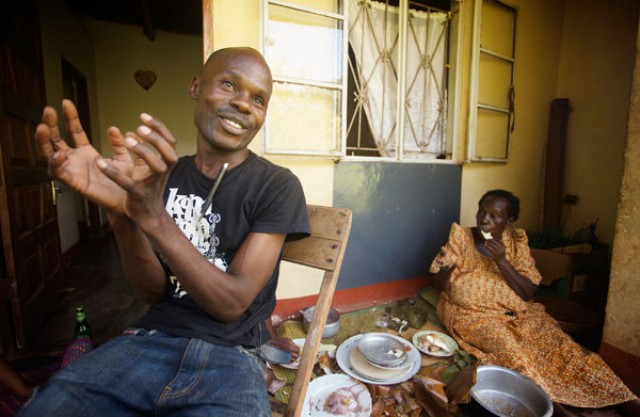
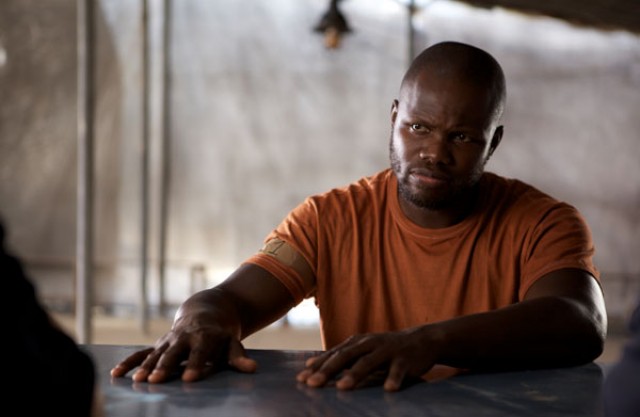
 Inspired by the real-life dilemma of Senegalese refugees illegally arriving on the shores of the Canary Islands seeking a new life, only to be put into internment camps and sent back — if they even survive the harrowing journey at all — Maggie Peren’s Color of the Ocean is a searing examination of poverty and the lengths people will go to achieve freedom. As a boat filled with more dead than living refugees pulls onto a beach, German tourist Nathalie (Sabine Timoteo) tries to help Zola (Hubert Koundé) and his son, Mamadou (Dami Adeeri), but is ordered to leave by cynical border policeman José (Alex González). The jaded José, who is facing his own personal problems involving his twin sister’s (Alba Alonso) drug addiction, is brutally straightforward about his lack of compassion for the Senegalese men, women, and children seeking asylum in Spain, much to the consternation of his more sympathetic partner, Carla (Nathalie Poza). After escaping from the camp, Zola and Mamadou turn to Nathalie for help, but her husband, Paul (Friedrich Mücke), insists she stay out of the potentially dangerous situation. The various stories soon come together in powerful ways as the characters reach deep inside themselves and discover that there are severe consequences to their actions — or inaction. Although it pulls at the heartstrings too much and too often takes the easy way out, Color of the Ocean is a compelling film that tells an important story that’s even more relevant given the current battle over immigration rights and deportation here in America. Writer-director Peren’s (Special Escort) focus on Nathalie lies at the heart of the film, with the character serving as a kind of representative for the audience, making viewers wonder what they would do if suddenly faced with similar life-altering — and life-threatening — decisions. Color of the Ocean is screening June 23 and 24 at the Human Rights Watch Film Festival, which runs through June 28 at the Film Society of Lincoln Center, highlighting seventeen works divided into five categories: “Health, Development, and the Environment,” “Lesbian, Gay, Bisexual, and Transgender (LGBT) and Migrants’ Rights,” “Personal Testimony and Witnessing,” “Reporting in Crises,” and “Women’s Rights,” with this year’s theme centering on how one individual or a small group of individuals can help make a difference.
Inspired by the real-life dilemma of Senegalese refugees illegally arriving on the shores of the Canary Islands seeking a new life, only to be put into internment camps and sent back — if they even survive the harrowing journey at all — Maggie Peren’s Color of the Ocean is a searing examination of poverty and the lengths people will go to achieve freedom. As a boat filled with more dead than living refugees pulls onto a beach, German tourist Nathalie (Sabine Timoteo) tries to help Zola (Hubert Koundé) and his son, Mamadou (Dami Adeeri), but is ordered to leave by cynical border policeman José (Alex González). The jaded José, who is facing his own personal problems involving his twin sister’s (Alba Alonso) drug addiction, is brutally straightforward about his lack of compassion for the Senegalese men, women, and children seeking asylum in Spain, much to the consternation of his more sympathetic partner, Carla (Nathalie Poza). After escaping from the camp, Zola and Mamadou turn to Nathalie for help, but her husband, Paul (Friedrich Mücke), insists she stay out of the potentially dangerous situation. The various stories soon come together in powerful ways as the characters reach deep inside themselves and discover that there are severe consequences to their actions — or inaction. Although it pulls at the heartstrings too much and too often takes the easy way out, Color of the Ocean is a compelling film that tells an important story that’s even more relevant given the current battle over immigration rights and deportation here in America. Writer-director Peren’s (Special Escort) focus on Nathalie lies at the heart of the film, with the character serving as a kind of representative for the audience, making viewers wonder what they would do if suddenly faced with similar life-altering — and life-threatening — decisions. Color of the Ocean is screening June 23 and 24 at the Human Rights Watch Film Festival, which runs through June 28 at the Film Society of Lincoln Center, highlighting seventeen works divided into five categories: “Health, Development, and the Environment,” “Lesbian, Gay, Bisexual, and Transgender (LGBT) and Migrants’ Rights,” “Personal Testimony and Witnessing,” “Reporting in Crises,” and “Women’s Rights,” with this year’s theme centering on how one individual or a small group of individuals can help make a difference.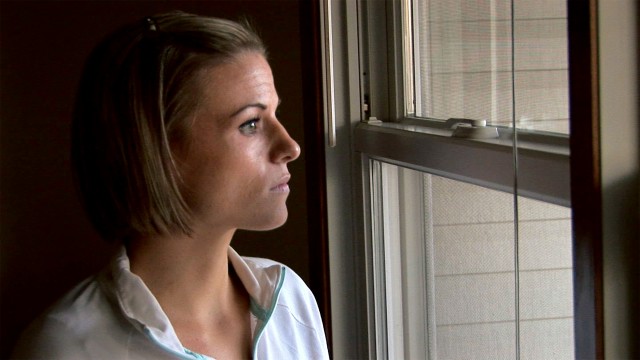
 Kirby Dick’s The Invisible War is one of the bravest, most explosive investigative documentaries you’re ever likely to see. Dick (This Film Is Not Yet Rated) busts open the military’s dirty little secret, revealing that episodes of horrific sexual abuse such as the Tailhook scandal are not an aberration but a prime example of a rape epidemic that seems to an accepted part of military culture. Dick speaks with many women and one man who share their incredible stories, describing in often graphic detail the sexual abuse they suffered, then faced further abuse when they reported what had happened. Their superiors, some of whom were the rapists themselves, either looked the other way, laughed off their allegations as no big deal, or threatened the victims’ careers. Dick includes remarkable Defense Department statistics — the government admits that approximately one out of every five female soldiers suffers sexual abuse and that there were nineteen thousand violent sex crimes in 2010 alone — even as such military officials as Dr. Kaye Whitley, Rear Admiral Anthony Kurta, and Brigadier General Mary Kay Hertog make absurd claims that they are satisfied with the way they are handling the alarming trend. The central figure in the film is Kori Cioca, a former member of the Coast Guard whose face was broken when she was raped by a superior and now keeps getting denied necessary medical services from the VA. Such courageous women as USAF Airman 1st Class Jessica Hinves, former Marine Officer Ariana Klay, USN veteran Trina McDonald, USMC Lieutenant Elle Helmer, USN Lieutenant Paula Coughlin, and even Special Agent Myla Haider of the Army Criminal Investigation Command also open up about the physical and psychological damage the abuse has left on their lives and careers.
Kirby Dick’s The Invisible War is one of the bravest, most explosive investigative documentaries you’re ever likely to see. Dick (This Film Is Not Yet Rated) busts open the military’s dirty little secret, revealing that episodes of horrific sexual abuse such as the Tailhook scandal are not an aberration but a prime example of a rape epidemic that seems to an accepted part of military culture. Dick speaks with many women and one man who share their incredible stories, describing in often graphic detail the sexual abuse they suffered, then faced further abuse when they reported what had happened. Their superiors, some of whom were the rapists themselves, either looked the other way, laughed off their allegations as no big deal, or threatened the victims’ careers. Dick includes remarkable Defense Department statistics — the government admits that approximately one out of every five female soldiers suffers sexual abuse and that there were nineteen thousand violent sex crimes in 2010 alone — even as such military officials as Dr. Kaye Whitley, Rear Admiral Anthony Kurta, and Brigadier General Mary Kay Hertog make absurd claims that they are satisfied with the way they are handling the alarming trend. The central figure in the film is Kori Cioca, a former member of the Coast Guard whose face was broken when she was raped by a superior and now keeps getting denied necessary medical services from the VA. Such courageous women as USAF Airman 1st Class Jessica Hinves, former Marine Officer Ariana Klay, USN veteran Trina McDonald, USMC Lieutenant Elle Helmer, USN Lieutenant Paula Coughlin, and even Special Agent Myla Haider of the Army Criminal Investigation Command also open up about the physical and psychological damage the abuse has left on their lives and careers. 